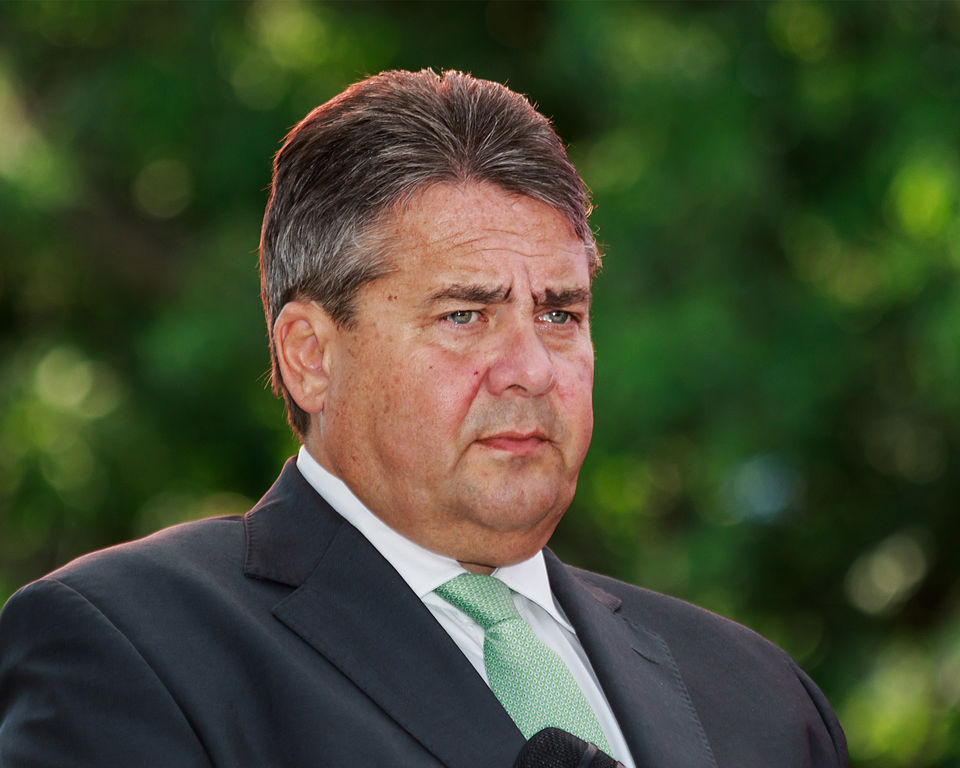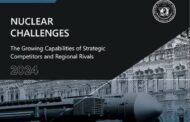Arms do not create security
Article by Foreign Minister Sigmar Gabriel in the “Rheinische Post” of 16 August 2017
_____________________________________________________________________________________________________________________________________
I was 32 when the Cold War came to an end. At that time, we all thought that the age of the arms race was over and that world peace had come. I had just become a member of the parliament of Land Lower Saxony. Today, we have seen that not only the Cold War with Russia has returned, but there are genuine “hot wars” all around the world. Civil war, terror and confrontations between states are, unfortunately, an everyday phenomenon once again. And, compared with the era of East-West confrontation, these conflicts and wars are far more complex and difficult to handle.
The question is how we should respond to this. US President Donald Trump’s answer is to rearm. What is more, he is increasing his military spending while slashing development aid and the social budget at the same time. If someone had told me a year ago that Federal Chancellor Angela Merkel and her CDU/CSU (Christian Democratic Union of Germany/Christian Social Union) would also go down this calamitous route, then I would have thought this impossible and would have called this out as entirely excessive criticism.
Unfortunately, the reality is that this is precisely what is happening. Merkel, the CDU/CSU and now also the FDP (Free Democratic Party) want to follow Trump’s lead and double Germany’s military expenditure. Trump and Merkel would have us spend more than 70 billion euros on the military each year! And because that’s a lot of money – France, as a nuclear power, “only” spends 40 billion euros each year – Jens Spahn, the CDU’s financial expert and political protégé of Finance Minister Wolfgang Schäuble, says that this spending should be offset by cuts to the social welfare budget.
Angela Merkel rejects this, but why should we believe her? Shortly before previous elections, the CDU Chancellor flatly rejected the abolition of conscription, shutting down nuclear power stations and the introduction of road tolls – only to do the exact opposite shortly after the elections.
This submission to Trump’s rearmament policy is wrong and unnecessary. Regardless of the fact that NATO has never made such an apodictic decision, there is no reasonable argument to support this wrong approach. Europe spends roughly half the amount that the US commits to defence – but with only 15 percent of the efficiency. If we cooperated better and stopped wasting billions, then everyone in Europe could save money instead of dramatically increasing military expenditure.
Germany would be well advised to double its efficiency instead of its spending. At the end of the day, it is clear to me too that the Bundeswehr is in need of greater support. CDU/CSU Defence Ministers have been tinkering with the Bundeswehr for the past 12 years.
Former Defence Minister Karl‑Theodor zu Guttenberg even wanted to make cutbacks of five billion euros a year. His Bundeswehr reform was about as carefully thought through as his doctoral thesis. We must therefore give our servicemen and women better equipment and pay. But that is not the same as ploughing ahead and doubling military expenditure.
What is even more important is that each and every German soldier who has been deployed abroad tells us that neither security nor stability can be achieved with weapons and the military alone. Only sustainable development, the fight against hunger, poverty and corrupt governments, and better opportunities for people give rise to lasting peace.
This is the great task that Europe faces – investing in peace instead of in war. And Germany must remain a force for peace and not become a weapons factory. This is also what the general election is about. It is about opposing submission to the militarisation of foreign policy advocated by Donald Trump. And not bowing down to this as, to my horror, the CDU/CSU and FDP now intend to do.
Peace and security are once again under threat in Europe. Military conflicts have come closer to us in the 21st century. Russia’s annexation of Crimea in contravention of international law and the situation in eastern Ukraine are a major breach of trust. It was right that NATO responded to this. Germany stands at the forefront of those who shoulder responsibility for the security of the alliance.
A Bundeswehr battalion is serving in Lithuania on NATO’s eastern border. However, when we only concern ourselves with the logic of deterrence, then we further escalation. We shouldn’t stand idly by when the European security architecture is at risk of degenerating into a wasteland of decommissioned, cancelled and obsolete treaties. What we need are common efforts in the area of arms control. All Europeans stand to benefit from this, including the Russians.
This calls for a comprehensive fresh start for conventional arms control, i.e. for conventional weapons of war in Europe. We must also make sure that Russia plays its part here. Furthermore, we must also strengthen our rules and order in the area of nuclear arms control.
North Korea reminds us right now of just how urgent this is. Pyongyang’s threat to use nuclear weapons is shaking the entire region, and the impacts of this are being felt as far away as here in Europe. This conflict will only be resolved by negotiations. Anyone who genuinely intends to get closer to the vision of a world free of nuclear weapons requires functioning treaties and agreements with reliable monitoring mechanisms. The nuclear-weapon states must reduce their arsenals, permanently refrain from nuclear tests and cease the production of weapons-grade materials.
We depend here on Russia and the USA, which, taken together, account for around 90 percent of the world’s nuclear weapons. I remember how the world looked to Reykjavík on 11 October 1986. That was before my time in the parliament of Land Lower Saxony.
I was still serving on the Goslar district council and working in municipal policy when Ronald Reagan and Mikhail Gorbachev met at Höfði House in Reykjavík and conducted world politics. The two men thrashed out a treaty that we benefit from to this day, the INF Treaty, which forbade the use of land-based intermediate-range missiles, thereby becoming a cornerstone of European security.
It is precisely this treaty that is currently under threat. Russia must address the allegations that it is knowingly violating this treaty – especially against the backdrop of Moscow’s expansion of its non‑strategic nuclear arsenal in Europe. The Americans should resume the dialogue on strategic stability and do everything in their power to save the existing arms control architecture. Furthermore, we will continue to work to ensure that Moscow and Washington extend the New START Treaty, which is to expire in 2021 and which has reduced strategic weapons and delivery systems.
Our long-term objective must also be to withdraw remaining tactical nuclear weapons that are still stored in Europe. This will only be possible, however, when we finally make considerable progress on disarmament as a whole.
The situation today is not the same as in 1986. Russia’s actions of aggression have put at risk much of what we believed we had achieved. Nevertheless, we still need dialogue, a clear position and clear offers. We must break free from the shackles of the vicious logic that claims that arms create security. That is the mantra of people such as President Trump, and one that he also wants to impose on his NATO partners. Unfortunately, I fear that Angela Merkel intends to do just that after the elections, namely wasting billions on weapons in order to placate Donald Trump. The SPD (Social Democratic Party of Germany) will not be cajoled into doing this.
We cannot invest our energy, ideas and our money primarily in the development of new weapons systems. We must go to at least the same lengths in the area of effective disarmament. Germany must be a pioneer of disarmament and not an agent of rearmament.
* * * * *
Zdroj: http://www.auswaertiges-amt.de/sid_254867CCC61F1D7F3EEBC3CC77ABCEB1/EN/Infoservice/Presse/Interviews/2017/170816-BM_Rheinische_Post.html
Ilustračné foto: https://commons.wikimedia.org/wiki/File:Sigmar_Gabriel_Berlin_2015-08-29.jpg







